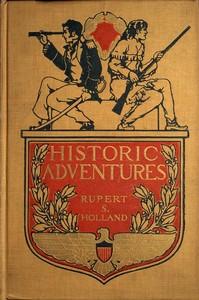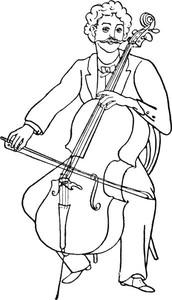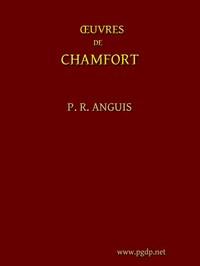|
|
Read this ebook for free! No credit card needed, absolutely nothing to pay.Words: 73419 in 13 pages
This is an ebook sharing website. You can read the uploaded ebooks for free here. No credit cards needed, nothing to pay. If you want to own a digital copy of the ebook, or want to read offline with your favorite ebook-reader, then you can choose to buy and download the ebook.

: Historic Adventures: Tales from American History by Holland Rupert Sargent - United States History Anecdotes@FreeBooksWed 07 Jun, 2023 Decatur caught the Moor's arm 90 The last six hundred miles were the hardest 152 Nauvoo had handsome houses and public buildings 166 Wherever there was a stream explorers began to dig 186 The teams, exhausted, began to fail 200 Spanish boats pulled close to them 282 THE LOST CHILDREN The valleys of Pennsylvania were dotted with log cabins in the days of the French and Indian wars. Sometimes a number of the little houses stood close together for protection, but often they were built far apart. Wherever the pioneer saw good farm land he settled. It was a new sensation for men to be able to go into the country and take whatever land attracted them. Gentle rolling fields, with wide views of distant country through the notches of the hills, shining rivers, splendid uncut forests, and rich pasturage were to be found not far from the growing village of Philadelphia, and were free to any who wished to take them. Such a land would have been a paradise, but for one shadow that hung over it. In the background always lurked the Indians, who might at any time, without rhyme or reason, steal down upon the lonely hamlet or cabin, and lay it waste. The pioneer looked across the broad acres of central Pennsylvania and found them beautiful. Only when he had built his home and planted his fields did he fully realize the constant peril that lurked in the wooded mountains. English, French, and Spanish came to the new world, and the English proved themselves the best colonists. They settled the central part of the Atlantic Coast, but among them and mixed with them were people of other lands. The Dutch took a liking for the Island of Manhattan and the Hudson River, the Swedes for Delaware, and into the colony of William Penn came pilgrims from what was called the Palatinate, Germans, a strong race drawn partly by desire for religious freedom, partly by the reports of the great free lands across the ocean. They brought with them the tongue, the customs, and the names of the German Fatherland, and many a valley of eastern Pennsylvania heard only the German language spoken. The Indian tribes known as the Six Nations roamed through the country watered by the Susquehanna. They hunted through all the land south of the Great Lakes. Sometimes they fought with the Delawares, sometimes with the Catawbas, and again they would smoke the calumet or pipe of peace with their neighbors, and give up the war-path for months at a time. But the settlers could never be sure of their intentions. Wily French agents might sow seeds of discord in the Indians' minds, and then the chiefs who had lately exchanged gifts with the settlers might suddenly steal upon some quiet village and leave the place in ruins. This constant peril was the price men had to pay in return for the right to take whatever land they liked. In a little valley of eastern Pennsylvania a German settler named John Hartman had built a cabin in 1754. He had come to this place with his wife and four children because here he might earn a good living from the land. He was a hard worker, and his farm was prospering. He had horses and cattle, and his wife spun and wove the clothing for the family. The four children, George, Barbara, Regina, and Christian, looked upon the valley as their home, forgetting the German village over the sea. Not far away lived neighbors, and sometimes the children went to play with other boys and girls, and sometimes their friends spent a holiday on John Hartman's farm. The family, like all farmers' families, rose early. Before they began the day's work the father would read to them from his big Bible, which he had brought from his native land as his most valuable possession. On a bright morning in the autumn of 1754 he gathered his family in the living-room of his cabin and read them a Bible lesson. The doors and windows stood open, and the sun flooded the little house, built of rough boards, and scrupulously clean. The farmer's dog, Wasser, lay curled up asleep just outside the front door, and a pair of horses, already harnessed, stood waiting to be driven to the field. Birds singing in the trees called to the children to hurry out-of-doors. They tried to listen to their father's voice as he read, and to pay attention. As they all knelt he prayed for their safety. Then they had breakfast, and the father and mother made plans for the day. Mrs. Hartman was to take the younger boy, Christian, to the flour-mill several miles away, and if they had time was to call at the cabin of a sick friend. The father and George went to the field to finish their sowing before the autumn rains should come, and the two little girls were told to look after the house till their mother should return. Little Christian sat upon an old horse, held on by his mother, and waved his hand to his father and George as he rode by the field on his way to the mill. Free books android app tbrJar TBR JAR Read Free books online gutenberg More posts by @FreeBooks
: Chats to 'Cello Students by Broadley Arthur - Cello Instruction and study@FreeBooksWed 07 Jun, 2023

: Œuvres Complètes de Chamfort (Tome 1) Recueillies et publiées avec une notice historique sur la vie et les écrits de l'auteur. by Chamfort S Bastien Roch Nicolas Auguis P R Pierre Ren Editor - French literature 18th century FR Littérature@FreeBooksWed 07 Jun, 2023

: The Philippine Islands 1493-1898: Volume 31 1640 Explorations by early navigators descriptions of the islands and their peoples their history and records of the Catholic missions as related in contemporaneous books and manuscripts showing the political ec@FreeBooksWed 07 Jun, 2023
|
Terms of Use Stock Market News! © gutenberg.org.in2025 All Rights reserved.






